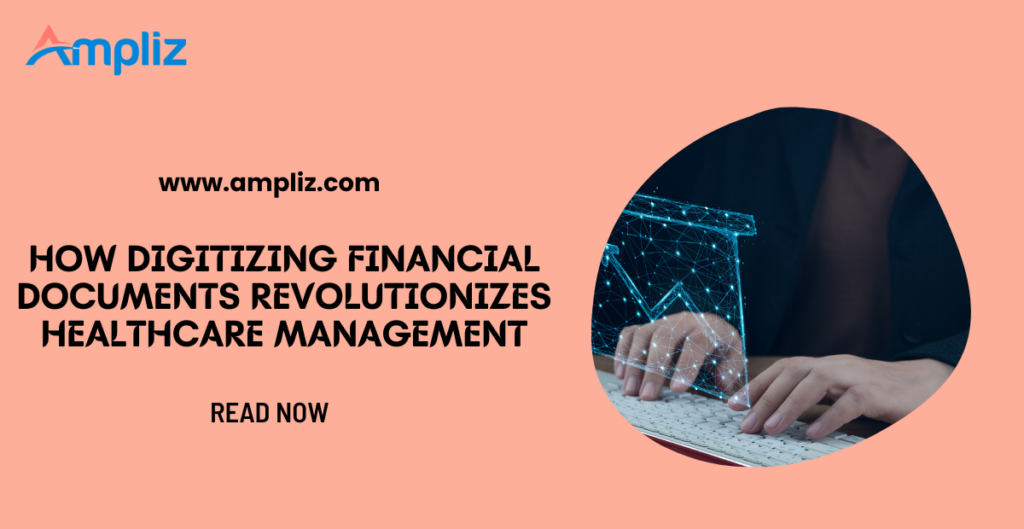In healthcare management, digitizing financial documents is rapidly becoming a cornerstone of efficiency. Streamlining healthcare operations hinges on the seamless integration of financial data management into everyday practices. With tools like PDF to QBO converters, healthcare providers can transform their approach to finance, reducing errors and enhancing auditability.
This digital transformation in healthcare not only refines budgeting but also interlinks with improvements in patient care quality. As we explore the intersection of electronic health records and financial documentation, let’s uncover how this pivotal shift is revolutionizing the realm of healthcare administration.
The rise of digital financial documentation in healthcare
In a sector where precision is paramount, the transition to digitizing financial documents marks a pivotal shift. For healthcare facilities, this evolution from paper-based systems to digital records means more than just decluttering filing cabinets—it ignites comprehensive improvements across the board.
- Faster access to financial information facilitates informed decision-making.
- Streamlined billing processes improve cash flow dynamics.
- Enhanced data security protocols protect sensitive patient information.
And the benefits extend further. By converting financial documents to digital formats, healthcare providers ensure that critical financial insights integrate seamlessly with Electronic Health Records (EHRs), enabling holistic management of both health and fiscal data—a synergy essential for top-tier care delivery.
Streamlining healthcare operations through efficient data management
Imagine an ecosystem where healthcare operations work not just effectively but with a grace that denotes high-level synchronization. It’s achievable—through the meticulous digitization of financial documents. Such streamlining translates into operational excellence, where each cog in the healthcare machine turns smoothly, aligned, and efficient.
- Reduced administrative burden as manual data entry wanes.
- Enhanced collaboration between departments owing to centralized data access.
- Optimized resource allocation thanks to real-time financial insights.
Key stakeholders find themselves on common ground when information flows unimpeded. Digital fluency in managing financial documents directly impacts the quality of patient care, while simultaneously elevating the standards of service delivery throughout every facet of healthcare management.
Embracing automated tools for strategic operational success
With the onslaught of digital transformation in healthcare, administrative staff are not just witnesses but active participants in shaping a new frontier of operational success. Here lies an opportunity to leverage technology that compresses time-consuming tasks—like turning bank statements from bank to Excel in seconds.
- Implementation of software that interprets and digitizes financial data swiftly.
- Automation of routine financial workflows reduces human error and increases reliability.
- Reallocation of staff hours from data entry to strategic analysis and patient-focused activities.
These automated tools propel healthcare operations into a realm where efficiency pairs with effectiveness. Staff are equipped to tackle more significant challenges as transactional burdens lighten, allowing patient care quality to become the unequivocal center of attention. The statement “bank to Excel in seconds” encapsulates this dynamic shift—a clear indicator of where health services can and should evolve.
Electronic transformation: Budgeting with precision and ease
Accelerating the pace at which healthcare facilities operate, digital transformation introduces a level of precision to budgeting that was once unattainable. As financial documents shed their paper origins, they morph into dynamic datasets ripe for analysis—an evolution critical in managing a facility’s lifeblood: its finances.
The application of AI in healthcare goes beyond diagnostics and treatment—it extends to the financial arena. Intelligent algorithms analyze spending patterns, predict future costs and flag disparities against budgets. This isn’t about replacing human insight; it’s about augmenting it—enabling finance teams to craft budgets that are not just numbers on a spreadsheet but strategic tools that navigate the complexities of healthcare economics.
This electronic transformation ensures that every dollar is tracked, every expenditure justified, and every financial forecast strategically aligned with the organization’s goals. With such technology at their disposal, healthcare providers gain unprecedented ability to steer their operations with confidence and foresight.
Advanced audit trails: Reinforcing accuracy and compliance
Audit trails, the backbone of financial accountability, take on an elevated role in the digitized healthcare landscape. Perfectly maintained records are no longer a lofty goal but a standard expectation. Digital financial documents provide a level of detail and traceability that traditional paper files simply cannot match.
The shift to digital ensures:
- Every transaction is logged with precision, creating an indelible record for review.
- Changes to financial data are tracked with user timestamps, fostering accountability among staff.
- Compliance with regulations becomes more manageable as reporting adapts to real-time data access.
In essence, advanced audit trails made possible through digital transformation serve as sentinels safeguarding the integrity of healthcare operations. They instill confidence not just in management but also in patients, who trust their providers to manage finances with meticulous care—essential for maintaining credibility in a highly regulated industry.
Improving patient care quality with digitized documents
Amidst the fervor of operational upgrades and system refinements, one critical outcome stands out – the profound impact on patient care. The digitization of financial documents is more than a backend adjustment; it’s a catalyst for elevating the entire healthcare experience.
One of the most promising healthcare trends arises from this digital shift: the ability to channel resources where they’re needed most. With financial documentation at their fingertips, healthcare providers can swiftly redirect funds to critical areas, be it cutting-edge research or life-saving equipment. This agility in resource allocation directly translates into enhanced quality of care—patients receive top-tier treatments fueled by data-driven decisions.
Moreover, digitization minimizes billing and insurance-related errors that can delay care delivery. Patients are no longer just recipients in this equation; they become informed participants who have greater transparency into their healthcare journey—a testament to how technological advancements nurture trust and satisfaction within the community they serve.
Financial data management: A vital pillar in modern healthcare
As healthcare organizations embrace a digital-first approach, financial data management emerges as crucial for sustaining growth and innovation. This strategic pillar supports not only day-to-day operations but also long-term planning and development.
The integration of comprehensive financial data management systems ensures:
- All-encompassing visibility into the organization’s fiscal health.
- Proactive identification of cost-saving opportunities.
- A nuanced understanding of revenue streams that inform policy and investment decisions.
Such systems, fed by digitized documents, yield insights that are both profound and actionable. The once-daunting volume of data becomes a rich tapestry from which leaders can draw informed conclusions, charting a course through the complexities of modern healthcare economics. Financial data management transforms from a static function to an active ally in driving quality care forward.
navigating the shift to electronic health records
The transition to electronic health records (EHRs) exemplifies a keystone in the arch of healthcare modernization. EHRs stand as pillars that not only support but elevate patient care through improved coordination and accessibility. Yet, their benefits extend into the realm of financial documentation as well.
With digitized financial documents, every charge and transaction becomes an integrated part of the patient’s holistic record. This convergence offers:
- A unified view of a patient’s healthcare journey alongside their financial commitments.
- Streamlined billing processes directly linked with clinical services.
- Enhanced communication between healthcare providers and healthcare payers for more efficient operations.
By navigating this shift thoughtfully, healthcare institutions set a precedent for efficiency and transparency that resonates throughout the industry. Effective integration of EHRs demonstrates an organization’s commitment to both operational excellence and patient-centered care—two traits indispensable in today’s rapidly evolving healthcare environment.
he future is now: Advances in digital healthcare finance
The digitization journey within healthcare finance is a remarkable odyssey from legacy systems to advanced tech solutions. This journey has laid a path for what many consider the golden age of healthcare administration—a future that’s already at our doorstep.
This evolution exposes a new frontier where data is not just stored but harnessed. Financial officers and healthcare administrators work hand-in-hand, utilizing real-time analytics to drive cost-effective decision-making. The vision of an entirely paperless financial workflow becomes more tangible as technologies mature and adoption rates soar.
Advances such as AI-driven predictive modeling for cost management and blockchain for secure transactions are not distant dreams but current realities reshaping the sector. As we stand on the precipice of this era, it’s clear that embracing these transformative digital tools amounts to more than innovation—it signifies a commitment to excellence in patient care and operational stewardship that will define leading healthcare organizations now and in the years to come.
Redefining healthcare’s financial future
The digitization of financial documents is not a trend; it’s the new standard for healthcare management. As this narrative unfolds, we witness an industry optimized by technology—a beacon of efficiency and quality patient care anchored by precise financial stewardship. The future is clear: digitized finance in healthcare is already delivering on its promise of transformation.


